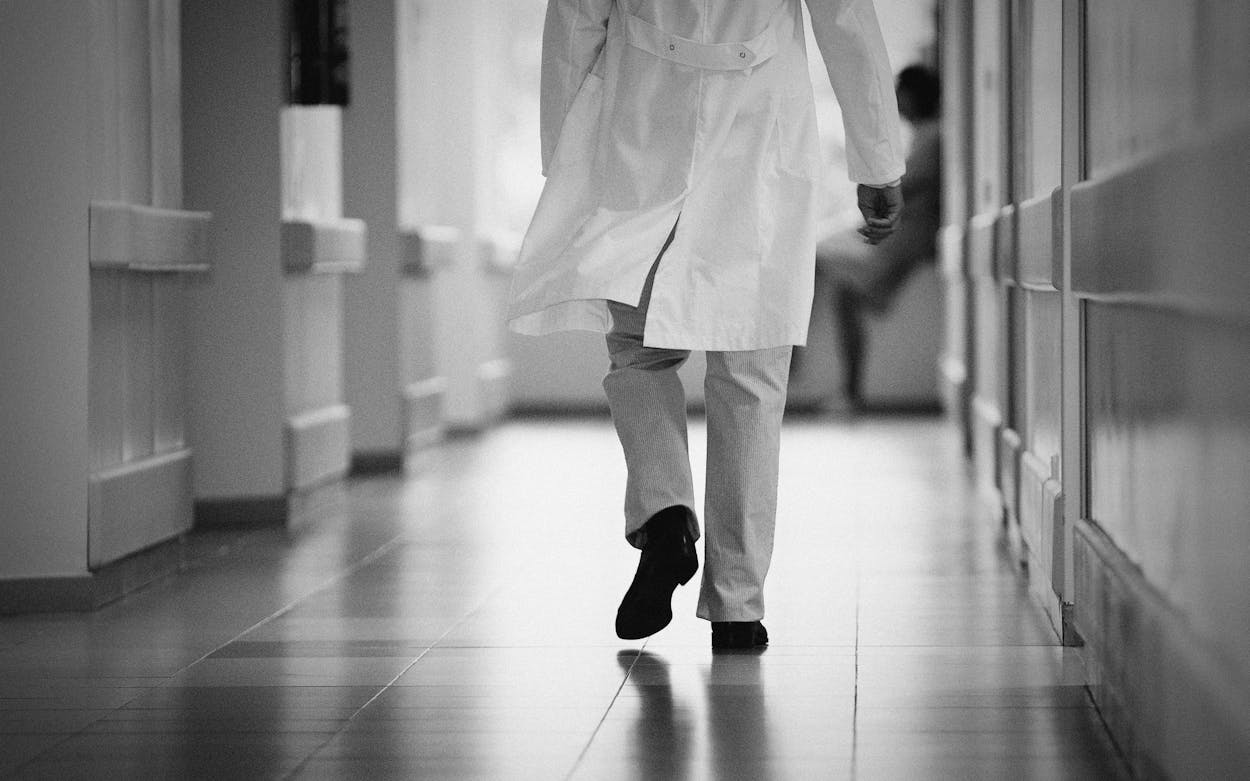On Thursday, a state court in San Antonio tossed out a lawsuit against Dr. Alan Braid. Braid was the first doctor to declare that he had performed an abortion in defiance of Texas’s 2021 Senate Bill 8 “bounty” law, which allows anyone who is aware of an abortion that occurred in the state to sue any party who “aids or abets” the abortion.
Braid didn’t perform the abortion in the summer of 2021 out of ignorance of the law. Rather, the physician, who began his career in 1972, did so intentionally—as he wrote in an op-ed for the Washington Post last September that publicized his decision to defy the law—because he considered the law unjust. The plaintiff in the case against Braid, a suspended Illinois lawyer named Felipe Gomez, was motivated not by any contempt for Braid’s actions (or even by avarice); instead, he said he wanted to give the physician an opportunity to challenge the law in court. “I don’t have a difference with the defendant,” Gomez told the Chicago Tribune in 2021. “The difference is with the writer of the law.”
SB 8 was a novel approach to restricting abortion, built around the idea that a right that the Constitution guaranteed—and that thus couldn’t be interfered with via a state’s penal code—could be attacked through a civil procedure. In this case, Texas Republicans created a mechanism through which any individual could sue any other who facilitated an abortion. The law was controversial from the outset, and it carried unusual implications. The U.S. Supreme Court’s decision not to intervene, allowing the law to go into effect, sparked unlikely support for abortion providers among Second Amendment groups, who feared that a blue state such as California might impose a similar restriction on firearms. (In July, the state’s governor, Gavin Newsom, signed a law modeled after SB 8 that allowed for civil enforcement against anyone who sold banned weapons or “ghost guns.”)
Governor Greg Abbott signed SB 8 into law in May 2021, before the U.S. Supreme Court’s ruling in Dobbs v. Jackson Women’s Health Organization, the case that overturned the five-decade-old precedent set by Roe v. Wade, in June. Dobbs rendered SB 8 largely redundant, as criminal enforcement of Texas’s abortion ban went into effect over the summer. Accordingly, the state court’s decision Thursday to throw out Gomez’s suit against Braid does nothing to affect the legality of abortion in Texas today; the procedure is banned in virtually all cases (an exception exists if a doctor believes—and is confident in their ability to persuade a local prosecutor, if necessary—that the pregnancy itself provides a direct and immediate life-threatening risk to the patient). However, the ruling does carry implications for similar laws.
Braid argued in the case that Gomez, who was unaffected by the abortion the doctor had performed, lacked legal standing to bring the lawsuit. This is a requirement in any lawsuit—the plaintiff must show that they’ve been harmed by the actions of the defendant—and SB 8’s declaration that the law created standing for anyone who wished to sue was among its most controversial elements. The state court agreed with Braid. Unusually, so did Gomez, who did not attempt to argue that he was harmed by the abortion; rather, he simply argued that the law allowed him to sue anyway.
The court’s dismissal of Gomez’s suit doesn’t answer other questions about SB 8, such as what would happen if a plaintiff who was directly affected by the abortion—say, the patient’s partner or the partner’s family—decided to file suit under the law.
Gomez told Bloomberg that he intended to appeal the judge’s ruling, which means that even this part of the SB 8 saga isn’t over. However, at this point, what we’re watching are squabbles over the legality of a novel, broad-based state law that sets a precedent for otherwise constitutionally protected rights to be infringed upon—such as by the California law regarding guns—and not anything that will immediately affect abortion access in Texas. It’s possible, should Congress pass a federal law codifying the right to an abortion along the lines of Roe, that the current battle over SB 8 would carry more direct implications for abortion access in the state. But that’s unlikely to happen with a divided Congress and the existence of the Senate filibuster.
The upshot: abortion remains illegal in Texas. But with Thursday’s ruling, the possibility that a doctor, nurse, or Uber driver who helps a patient receive one will face stiff civil fines in addition to criminal penalties has been somewhat reduced—at least for the time being.
- More About:
- Politics & Policy
- Abortion
- Greg Abbott
- San Antonio








